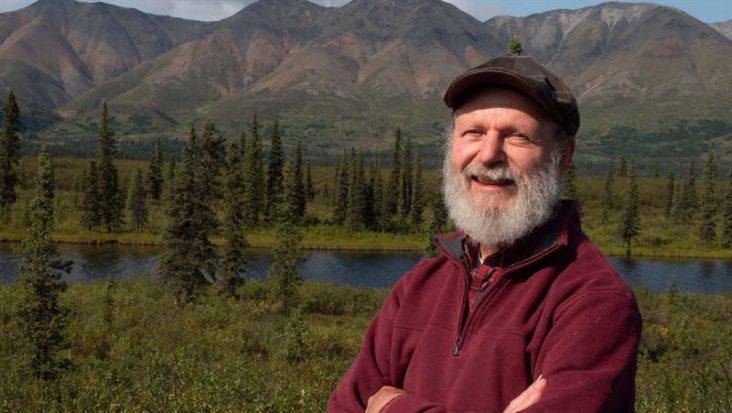Ecologist Terry Chapin, Creator Of The Concept Of Earth Stewardship, Receives The Volvo Environment Prize 2019

An ecology professor who has spent decades doing research and field work in the challenging conditions of the Arctic is the winner of the Volvo Environment Prize 2019.
Over the 30 years of the prize, the jury has often selected prize-winners whose research has proven to be vital in shaping the modern sustainability agenda. Terry Chapin is no exception to this rule. As an Ecology Professor at the University of Alaska, Fairbanks, he has spent long periods in the tundra of Siberia and Alaska, studying processes that we now know can have dramatic effects on the global climate. For the past 10 years he has been linking his knowledge of ecology to ethics, creating the concept of Earth Stewardship.
Decades ago, only a few scientists, including Terry Chapin, began to understand the impact of climate change on the carbon-rich tundra, permafrost and boreal forests of the Northern Hemisphere. Says Terry Chapin:
– Climate change happens twice as fast in Alaska and in the rest of the Arctic as for the globe as a whole. And since Alaska is so sensitive to temperature, this is where processes are going to be most affected.
It is already happening. Wildfires have always occurred in the Alaskan wilderness, but the past decade they have increased dramatically. The wildfires are larger and more frequent, due to warmer temperatures and drier weather conditions. That is why the city of Fairbanks, Alaska, located in pristine wilderness and far away from polluting industries, can for weeks have some of the worst air quality found anywhere on Earth when nearby wildfires spread their vast plumes of smoke.
Scientists at the University of Alaska, Fairbanks, are closely monitoring the changes that are occurring in the frozen ground. Thawing releases carbon under anaerobic conditions to emit methane, a powerful greenhouse gas. No one knows for sure how fast the process is, but effects could be dramatic. Permafrost in the Arctic alone is estimated to hold nearly twice as much carbon as the entire atmosphere. Releasing only a part of this frozen carbon would overwhelm several decades of human emissions from our vehicles, industries, powerplants, ships and airplanes.
During his many years of research on the effects of Arctic climate change, Terry Chapin has cooperated closely with indigenous communities in Alaska, and is inspired by them.
– Indigenous people have a wonderful tradition and history of relating to the land, because they absolutely depend on it for survival. There is an ethic of respect that has been lost, to some degree, in Western societies.
He believes that it is important to relearn the ethics of respect for nature and the land. Terry Chapin has developed the concept of what he calls Earth Stewardship for the relationship between people and nature. It is a set of guiding principles on ecology and ethics aimed at preserving biodiversity and the planetary life support system by acting responsibly, very often on local levels. He is optimistic that grass roots movements can trigger changes in life styles, reducing environmental footprints and supporting climate-friendly businesses and legislation.
– In the last 70 years we have reached Earth-changing levels of human activity. This is one of the reasons I think that Earth Stewardship is so important. It´s a chance to reshape the future path that humanity will take.
The motivation of the jury of the Volvo Environment Prize Foundation:
“Throughout his decades-long career in ecosystems research and global change, Professor Terry Chapin has worked tirelessly with people and for the planet. His work will have a long-lasting impact on the ways we seek to build a sustainable future, with the concept of Earth Stewardship supporting the deep institutional and structural change required to meet the challenges ahead. ”
For more information about the Volvo Environment Prize and this year’s winner, please contact Chairman of the Jury, Emeritus Professor Will Steffen, Fenner School of Environment and Society, Australian National University, e-mail: will.steffen@anu.edu.au
The Volvo Environment Prize celebrates its 30th anniversary and has become one of the world’s most prestigious environmental prizes. It is awarded annually to people who have made outstanding scientific discoveries within the area of the environment and sustainable development. The prize consists of a diploma, a glass sculpture and a cash sum of SEK 1.5 million and will be presented at a ceremony in Stockholm on 7 November 2019.
For more information about the 2019 laureate and the Volvo Environment Prize: www.environment-prize.com
Emeritus Ecology Professor Stuart “Terry” Chapin III, University of Alaska, Fairbanks, USA is the winner of the Volvo Environment Prize 2019. Photo: Tore Marklund



